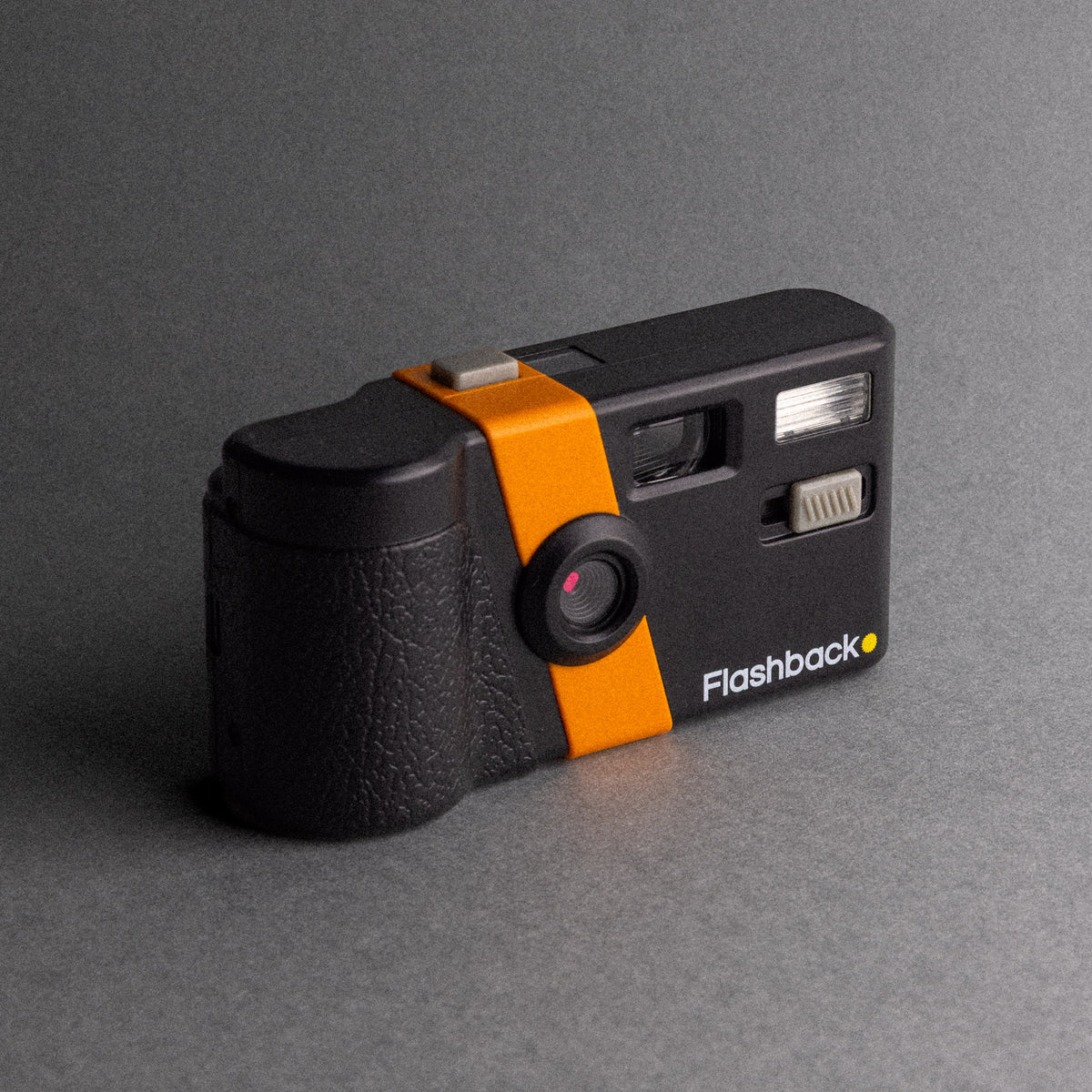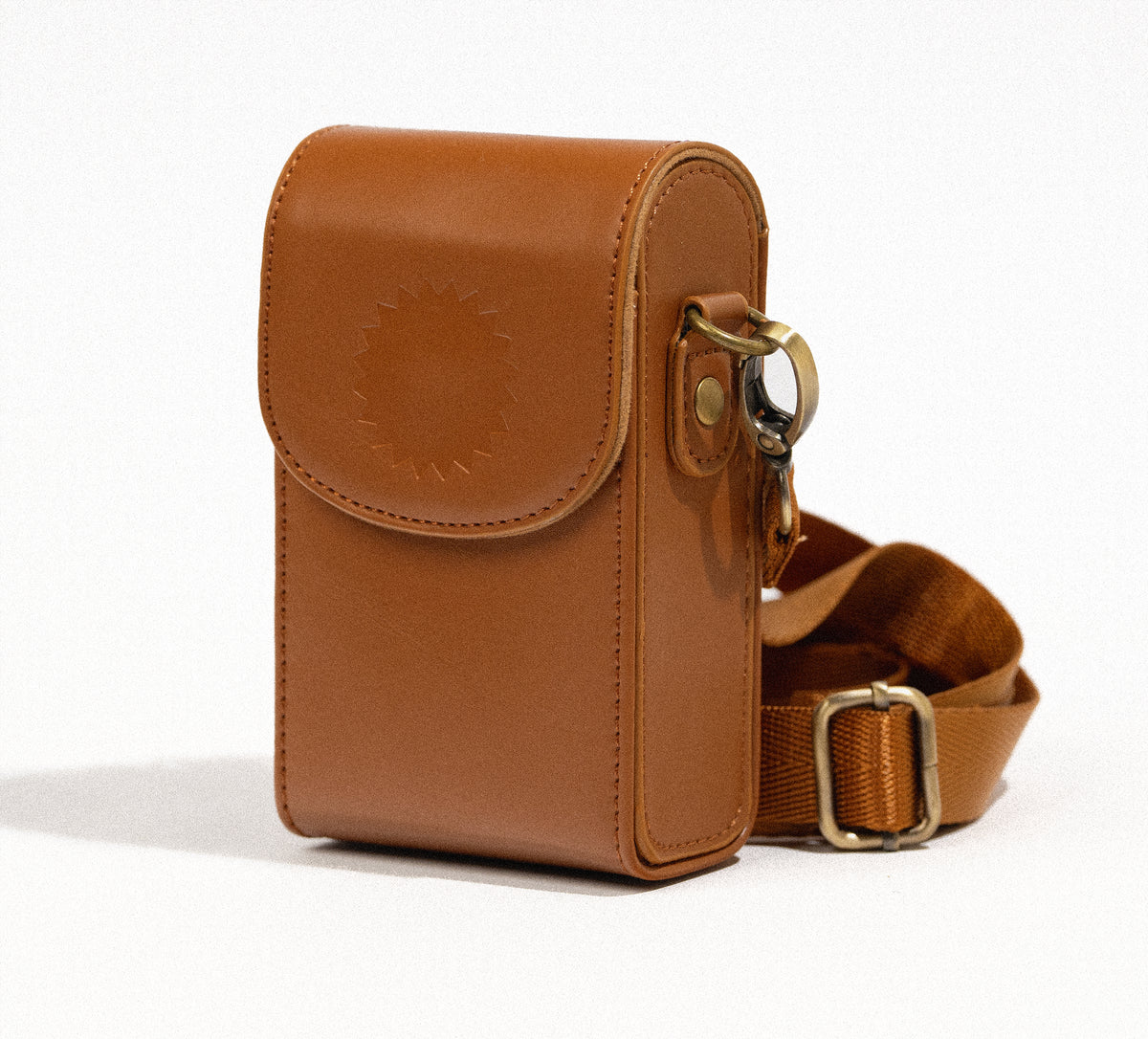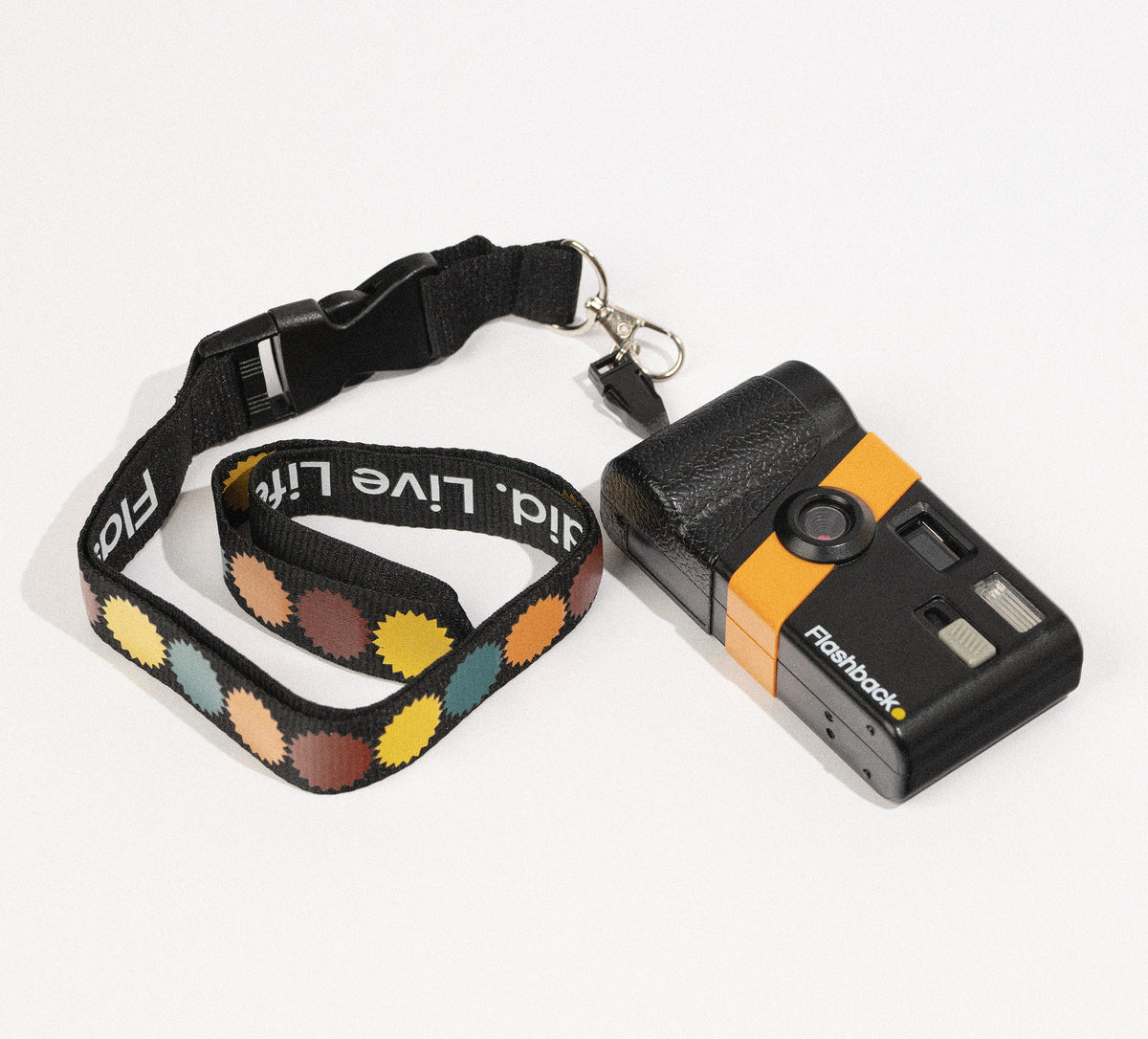There’s no doubt that people are becoming a lot more critical about the disposable products they use every day, and for good reason: the world generates over 2 billion tonnes of municipal solid waste each year. Further, at least one third of that is not managed in an environmentally safe manner.
Disposable cameras have always been the subject of controversy. At their inception in 1986, the cameras were designed to end up in landfill, and the community wasn’t happy. In fact, Kodak was even awarded a scathing “Waste Maker of the Year” award from a U.S. Senator. Due to public pressure, the primary manufacturers eventually introduced recycling programs.
A big part of Flashback’s journey is to cut down the waste caused by disposable cameras. Reduce, reuse, recycle is a common mantra used to describe waste reduction, so let’s see how it applies to disposable cameras today!
Reduce, reuse, recycle
The words “reduce, reuse, recycle” are written in that order for a reason. While a lot of materials and products can be recycled, this process still uses a lot of power and chemicals, and not every piece of a product can be recycled. So, it can be better to reduce our waste or find ways to reuse the things we enjoy.

Reduce: Like we covered recently in 5 Ways to be Sustainable with Film and Disposables, it might be a good idea to use fewer disposables. This isn’t easy if you’re addicted to the click and bright flash of a disposable (no shame - we are too!). For this reason a lot of people are making the switch to a camera they can reuse. A traditional film camera is a common choice, but they can be expensive and a bit trickier to use. Plus it can be a hassle to constantly buy film and take it to the shop to be developed.
What if there was a way to take the best parts of disposable and digital photography and put them together? Flashback is releasing a camera later this year that uses the magic of film (sheer retro authenticity) - but without the environmental waste. Enter your email address below to be the first to see our progress. We’ll also send you an exclusive early bird discount!
Finally, when it comes to recycling disposable cameras, we’ve done our research. Throughout 2021 and 2022, Flashback surveyed many film development shops in Brisbane, Australia. What we found was shocking: every single store we spoke to simply throws used disposable cameras in the bin! We’ve rescued many of these cameras from landfill in order to research how they could be recycled - you may have spotted them in our TikToks.
The verdict
To us, it looks like while recycling programs were introduced in the 90s, they’ve died off in many countries as disposable camera use declined. This is a huge issue with their recent surge in popularity!
We’ve also noticed that Kodak and Fujifilm can only recycle their own cameras, but many are being produced by other suppliers. There are countless nameless suppliers on wholesale sites like Alibaba, and we haven’t found any recycling programs in the countries where they end up being sold. Further, not every Fujifilm’s program only recycles the plastic components but ignores the electronics which can do just as much damage!
The awful truth of this situation is that it looks like many of the 10 million or more disposable cameras sold worldwide each year aren’t being recycled, and the ones that are still lead to unrecoverable waste.
Where do we go from here?
Disposable cameras are continuing to resurge, and for good reason: they offer a peek into a bygone era where photography was about celebrating the most honest moments in life - filter free. That said, it’s hard to justify a disposable product still existing in 2022. Our whole team at Flashback is passionate about finding a better path towards candid photography. Our new camera - coming later this year - might just be the solution. Flashback’s mission is to bring a bit of romance back to everyday photography, and we’d love to have you come with us! The form below will sign you up for exclusive updates, discounts and more.





35 comments
Experience the Is This a Cry for Help PDF with a high-quality download. This file is ready. Get the copy today and start reading. https://isthisacryforhelppdf.site/ Is This A Cry For Help Archive.org
This book is a journey of self-discovery for two girls who share a father. The verse format adds a layer of depth to the narrative. If you are looking for a digital copy, the PDF of this novel is available. https://clapwhenyoulandpdf.site/ Clap When You Land Film
Born of Trouble is a story that will make you laugh, cry, and think. This emotionally rich and intellectually stimulating narrative is now available in a digital pdf format. It is a reading experience that offers something for every part of your soul. https://bornoftroublepdf.site/ Popular Romance Novels Pdf
I love the feeling of having a secret library. My folder from an archive of romance is my private retreat. I can open a PDF and escape into a world of fantasy and romance whenever I want, without anyone else knowing where I’ve gone. https://anarchiveofromancepdf.top/ An Archive Of Romance Ava Reid Epub
For readers who prefer a clean and organized interface, finding the right source is key. A structured archive of romance helps you filter by author or trope. I always choose the PDF option because it ensures the text looks crisp and readable, regardless of the screen size I am using. https://anarchiveofromancepdf.top/ An Archive Of Romance Pdf Mega
The search for a high-quality Anatomy of an Alibi PDF ends here. We offer a pristine digital copy of the book for your enjoyment. captivating from start to finish, this novel is best experienced in a format that suits your lifestyle. Download it now. https://anatomyofanalibipdf.top/ Anatomy Of An Alibi Ashley Elston Vk
Enter a life where every character has something to hide. This domestic thriller is a must-read for fans of the genre. Access the My Husband’s Wife PDF to see how the plot unfolds. It is the perfect companion for a rainy weekend of reading. https://myhusbandswifepdf.top/ My Husband’s Wife Paperback Pdf
Imagine a world where you can access thrilling stories that make you scream in just a few clicks. This PDF offers exactly that convenience. It is a professionally formatted digital book that ensures you can enjoy high-quality literature from the comfort of your home or while on the go. https://youcanscreampdf.top/ Laurel Snow Book 5 Pdf
Get Alcott Hall PDF file. This document is sound. Download it now. https://alcotthallpdf.top/ Emily Rath Alcott Hall Epub Free
Our archive offers the Alcott Hall PDF to help you complete your research efficiently. This file is free from digital rights management restrictions, allowing for easy personal use. Grab this opportunity to expand your knowledge base with a high-quality digital text available instantly. https://alcotthallpdf.top/ Alcott Hall Pdf Download Free